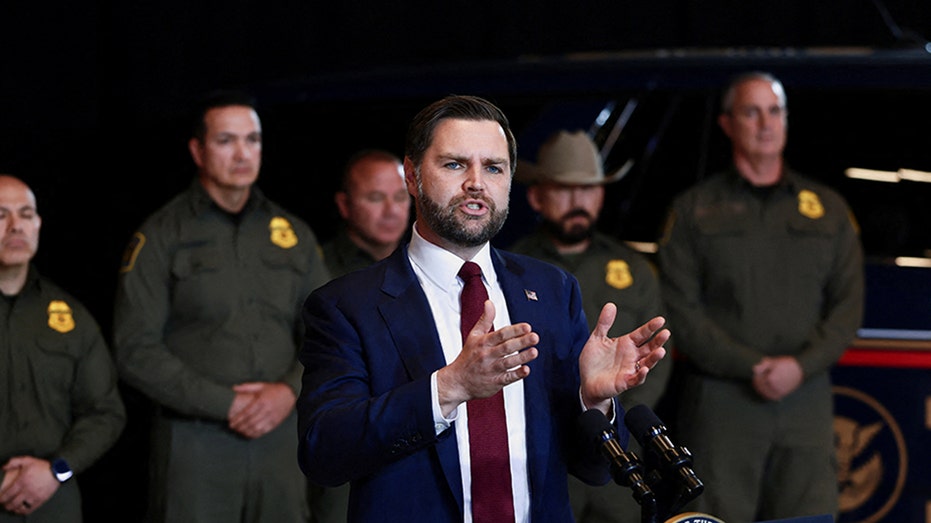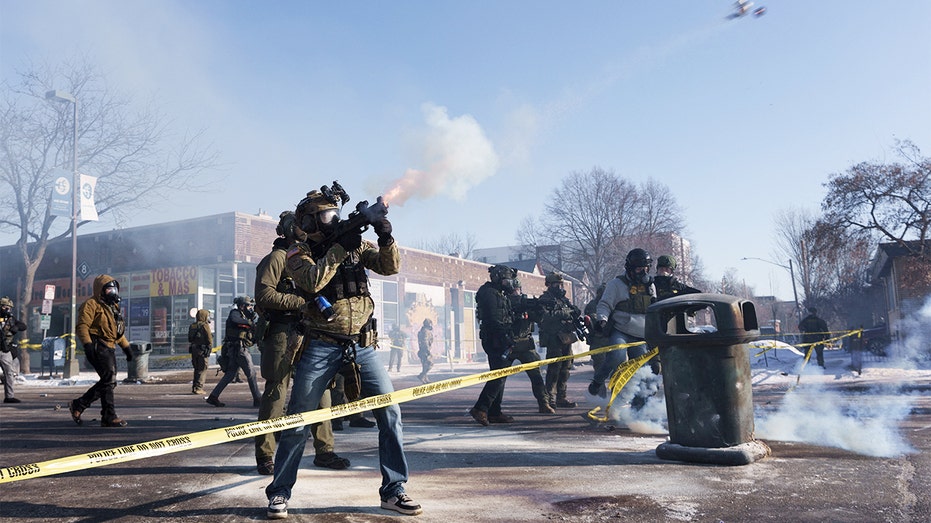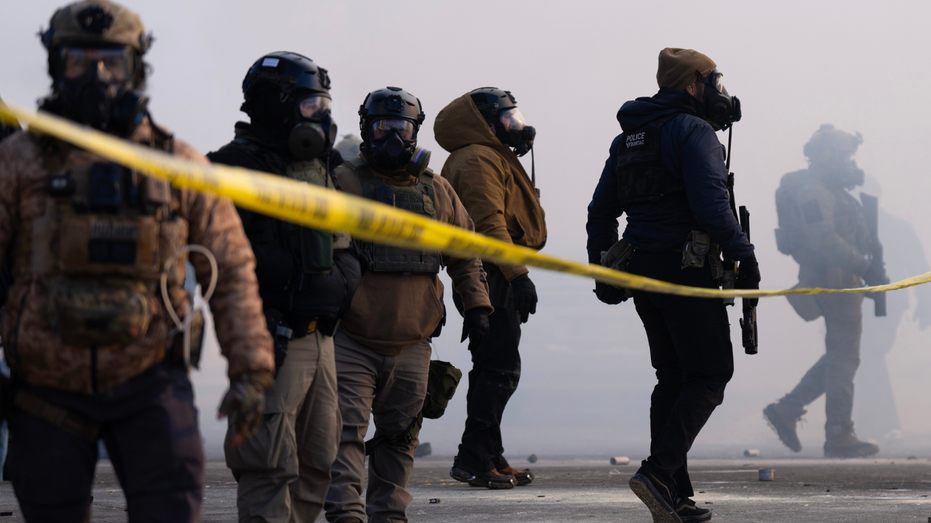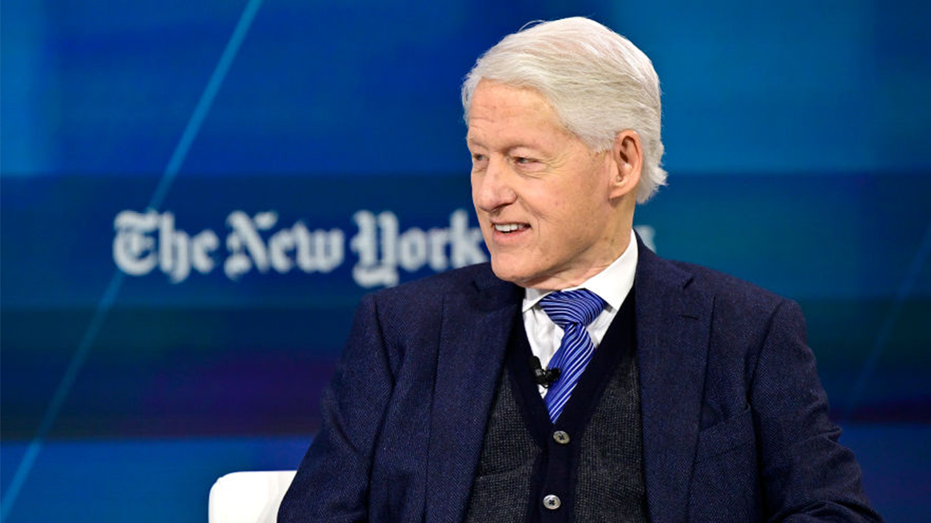Republic Day Parade 2026: When and were to watch live, check full schedule, tickets availability

India is all set to celebrate its 77th Republic Day on January 26, 2026, with central theme is “Vande Mataram”. The Republic Day parade will begin on January 26, 2026, at Kartavya Path in New Delhi. When and Where to watch?
Republic Day 2026: Why is India’s R-Day celebrated on January 26th?

India’s draft constitution was presented in November 1948 and publicly debated for nearly a year. On November 26, 1949, the document was adopted. It was one of the longest written constitutions in the world, defining India as a sovereign, democratic republic, and a union of states.
Rajasthan: Police seize 10000 kg of explosive material, detonators ahead of Republic Day; probe underway

Rajasthan Police have made a significant breakthrough by arresting a man and seizing nearly 10,000 kg of explosives linked to illegal mining in Nagaur district.
Republic Day 2026: How India selects its chief guest? Check complete list of Republic Day guests here

India’s Republic Day chief guest tradition highlights the country’s diplomatic priorities and global ties. From President Sukarno in 1950 to European Union leaders in 2026, the invited dignitaries reflect India’s evolving foreign policy, strategic partnerships, and international outreach.
Delhi government aanounces special remission to over 2000 prisoners on Republic Day 2026

The Home Minister, Govt of Delhi, Ashish Sood, stated that the remission shall apply to convicts sentenced by courts of criminal jurisdiction in Delhi and lodged in Central Jails of the NCT of Delhi or outside Delhi, who are undergoing sentence as on 26.01.2026, subject to prescribed condition.
JD Vance shares ‘crazy’ story of ICE and CBP officers being mobbed in Minneapolis

Vice President JD Vance on Sunday shared what he called a “crazy” account underscoring the dangers federal immigration officers are facing in Minneapolis, amid a series of agent-involved shootings and escalating unrest. Recounting a recent visit to the city, Vance described an incident in which off-duty Immigration and Customs Enforcement (ICE) and Customs and Border Protection (CBP) officers were doxxed while dining at a restaurant. According to Vance, their location was publicly revealed, the restaurant was mobbed, and the officers were effectively trapped inside. “When I was in Minneapolis, I heard a number of crazy stories. But near the top of the list: A couple of off duty ICE and CBP officers were going to dinner in Minneapolis,” Vance wrote on X. “They were doxed and their location revealed, and the restaurant was then mobbed. The officers were locked in the restaurant.” ALEX PRETTI, 37, IDENTIFIED AS MAN FATALLY SHOT BY BORDER PATROL AGENT IN MINNEAPOLIS Vance said local police refused to respond when the officers called for help. “The officers were locked in the restaurant, and local police refused to respond to their pleas for help (as they’ve been directed by local authorities),” he wrote. “Eventually, their fellow federal agents came to their aid.” BARACK AND MICHELLE OBAMA SLAM ICE AFTER MINNEAPOLIS SHOOTING, URGE ACCOUNTABILITY “This is just a taste of what’s happening in Minneapolis because state and local officials refuse to cooperate with immigration enforcement,” Vance wrote. “They have created the chaos so they can have moments like yesterday, where someone tragically dies and politicians get to grandstand about the evils of enforcing the border.” Vance urged Minneapolis officials to change course. “The solution is staring everyone in the face. I hope authorities in Minneapolis stop this madness.” A day earlier, Vance described the unrest in Minnesota as “engineered chaos” following another fatal federal agent-involved shooting. NOEM SAYS MINNEAPOLIS SUSPECT COMMITTED ‘DOMESTIC TERRORISM,’ ACCUSES WALZ, FREY OF INCITING VIOLENCE On Saturday, 37-year-old Alex Pretti, a Minneapolis nurse who was carrying a licensed handgun while protesting a federal immigration enforcement operation, was fatally shot by a U.S. Border Patrol agent. Authorities say Pretti resisted arrest after trying to intervene in the operation. Minnesota Governor Tim Walz and Minneapolis Mayor Jacob Frey did not immediately respond to Fox News Digital’s request for comment. Fox News Digital’s Amanda Macias contributed to this report.
Federal immigration officials privately fume over DHS claims after deadly Minnesota shooting

Deep internal divisions have emerged within federal immigration enforcement over how the Department of Homeland Security (DHS) is handling the public fallout and messaging after a deadly Border Patrol shooting in Minneapolis, Fox News has learned. More than half a dozen federal law enforcement officials involved in immigration enforcement tell Fox News there is growing frustration with how senior officials have framed the incident publicly, fueling internal debates about tone, strategy and credibility as scrutiny intensifies. The shooting happened during a morning immigration enforcement operation Saturday, when a Border Patrol agent fatally shot Alex Pretti, a 37-year-old Minneapolis resident and Veterans Affairs intensive care unit nurse. Authorities say Pretti was armed with a handgun and two magazines. In the hours and days that followed, DHS officials publicly described Pretti as a domestic terrorist and said he was attempting to “inflict maximum damage” on federal agents or carry out a “massacre,” language that has drawn internal criticism from within the department, Fox News is told. VANCE CALLS MINNEAPOLIS UNREST ‘ENGINEERED CHAOS’ AFTER DEADLY SHOOTING Officials say multiple videos that later emerged have called into question the DHS narrative, fueling frustration among agents who believe senior officials moved too quickly to characterize the incident before all facts were known. The internal disputes, officials say, have been damaging from a public relations and morale standpoint, eroding trust and credibility and intensifying broader debates within the administration over how DHS leadership handles high-profile, politically charged incidents. The officials who spoke with Fox News said they support the mass deportation agenda, though they have serious hesitations about the messaging and how the agenda is being carried out. GOP LAWMAKER RENEWS OVERSIGHT HEARING REQUEST OF DHS AGENCIES FOLLOWING FATAL SHOOTING IN MINNEAPOLIS Some also expressed frustration that U.S. Immigration and Customs Enforcement (ICE) is routinely blamed for the actions of the Border Patrol, which is a separate agency. Some officials described DHS’ response to the shooting as “a case study on how not to do crisis PR,” with one saying they are so “fed up” that they wish they could retire, another saying “DHS is making the situation worse,” and another adding that “DHS is wrong” and “we are losing this war, we are losing the base and the narrative.” Fox News reached out to DHS for comment on concerns that its rhetoric and communications may have damaged the agency’s credibility. BORDER PATROL-INVOLVED SHOOTING REPORTED IN MINNEAPOLIS “We have seen a highly coordinated campaign of violence against our law enforcement,” DHS said in a statement to Fox News. “This individual committed a federal crime while armed as he obstructed an active law enforcement operation. As with any situation that is evolving, we work to give swift, accurate information to the American people as more information becomes available.” Officials say those internal frictions have now escalated, with widespread criticism that the aggressive tactics pushed by DHS Secretary Kristi Noem are eroding public support for the mass deportation agenda and putting federal agents at risk. Fox News previously reported in October that deep internal friction had emerged within the Trump administration’s mass deportation effort, with competing camps inside DHS divided over enforcement priorities, tactics and how aggressively to carry out deportations.
Trump confirms federal review of Minneapolis shooting that killed nurse: ‘Reviewing everything’

President Trump confirmed his administration is “reviewing everything” in the wake of the Minneapolis shooting that left 37-year-old nurse Alex J. Pretti dead. Speaking to The Wall Street Journal, Trump stopped short of confirming whether the federal agent who fired the fatal shots on Jan. 24 acted appropriately. “We’re looking, we’re reviewing everything and will come out with a determination,” Trump told the outlet as questions mounted over the incident and the broader immigration operation in the city. Pretti, an ICU nurse, was shot and killed by a U.S. Border Patrol agent while filming federal officers on a Minneapolis street. GOP SEN. CASSIDY BREAKS WITH TRUMP OVER DEADLY SHOOTING BY BORDER PATROL AGENT IN MINNEAPOLIS The officer’s operation was targeting Jose Huerta-Chuma, an illegal immigrant with a criminal history including domestic assault for intentional conflict bodily harm, disorderly conduct and driving without a valid license. Federal officials initially claimed Pretti approached agents with a 9 mm handgun and resisted disarmament. Bystander video and eyewitness accounts circulating online raised questions about that version of events and whether Pretti was threatening officers when he was shot. TIM WALZ COMPARES MINNESOTA ICE ACTIONS TO HOLOCAUST AND ANNE FRANK: ‘HIDING IN THEIR HOUSES’ “I don’t like any shooting. I don’t like it,” Trump said, adding that Pretti carried “a very powerful, fully loaded gun with two magazines… That doesn’t play good either.” Trump also tied the federal presence in Minnesota to what he described as a sprawling welfare-fraud scandal in the state, arguing that immigration enforcement was necessary to address broader abuses. “It’s the biggest fraud anyone has seen,” the president said. The fraud claims in the state have been a central part of the administration’s need to ramp up federal operations there. VANCE CALLS MINNEAPOLIS UNREST ‘ENGINEERED CHAOS’ AFTER DEADLY SHOOTING The Minneapolis shooting of Pretti also marked the second death that happened in a confrontation between federal immigration officers and civilians in the city. Renee Good was shot and killed on Jan. 7 by a U.S. Immigration and Customs Enforcement (ICE) agent during a different operation. That incident fueled protests and spotlighted the role of ICE in domestic law enforcement actions. “At some point we will leave. We’ve done, they’ve done a phenomenal job,” Trump said without offering a time frame for when agents might depart. “We’ll leave a different group of people there for the financial fraud,” he told the outlet. White House press secretary Karoline Leavitt has also stressed cooperation among law enforcement as essential. “Nobody, including President Trump, wants to see people get shot or hurt,” Leavitt said, urging officials to work more closely with the administration in addressing undocumented individuals living in the country illegally.
The far-left network that helped put Alex Pretti in harm’s way, then made him a martyr

The skirmish that led to Saturday’s fatal shooting of an agitator by Border Patrol agents in Minneapolis and the response that followed were driven by a complex network of far-left organizations with a wide range of causes, a Fox News Digital investigation found. A coordinated web of encrypted chats, street alerts and tracking of ICE “Abductors” in a sophisticated database reviewed by Fox News Digital shows that agitators were already mobilized at the scene where 37-year-old Alex Pretti was killed minutes before any shots were fired. ICE and Border Patrol agents were there to arrest an illegal immigrant criminal, and Pretti and others were there, outside a donut shop, to meet them as part of a strategic pattern of organized interference with law enforcement operations. Over the following hours, a national network of socialist, communist and Marxist-Leninist cells in the United States leveraged the tragic fatality into a nationwide protest operation. While grief and outrage over Pretti’s death is genuine, the network’s real-time rapid response, using short sensational video clips and emojis as weapons of propaganda, offers a window into the disciplined logistics, messaging and coordination of far-left warriors fomenting insurgency-like confrontation with authorities. VANCE CALLS MINNEAPOLIS UNREST ‘ENGINEERED CHAOS’ AFTER DEADLY SHOOTING “This level of engineered chaos is unique to Minneapolis. It is the direct consequence of far left agitators, working with local authorities,” Vice President JD Vance observed in a Sunday post on X. The encrypted Signal messages obtained by Fox News Digital in real time show that anti-ICE “rapid responders” were actively tracking, broadcasting and summoning “backup” around federal agents outside Glam Doll Donuts on Nicollet Avenue, where the shooting occurred. Local “rapid responders” made at least 26 entries into a database called “MN ICE Plates” in the critical hours before and after the killing, documenting the license plate numbers and details of alleged ICE vehicles they claimed to see around Nicollet Avenue. The entry at row 344 read, “At the nicollet [sic] murder,” chronicling a black Jeep Wagoneer at the location with agents allegedly “involved in shooting.” Row 338 had a “Glam Doll Donuts” entry, tracking a black Ford Taurus. BONDI BLAMES MINNEAPOLIS LEADERS AFTER ARMED SUSPECT KILLED, UNREST ERUPTS DURING ICE OPERATION At 9:50 a.m. ET, just before the killing, a user identified as “Willow” shared a 22-second video on an encrypted Signal chat for anti-ICE “rapid responders.” “26and 3rd,” wrote “Willow,” quickly following up with, “Outside Glam Doll.” The video showed two agents, one wearing a vest marked “POLICE,” studying the front door of Glam Doll before walking away, past a sign in the window that read, “ICE OUT OF MINNESOTA.” As the camera rolled, the person filming yelled, “No!” The camera followed the agents as they returned to a maroon Dodge Durango, passing another sign in the window that read, “ALL WELCOME HERE.” In the video, someone shouted, “Get out of here!” Just three minutes later, at 9:53 a.m. ET, a second Signal user, “Salacious B. Crumb,” escalated the alert, summoning additional responders and citing the same vehicle and agents. “Backup needed at the Black Forest Inn parking lot on Nicollet Ave just south of 26th Street,” the message read. DHS SAYS ICE AGENTS RAMMED BY VEHICLES AMID MINNEAPOLIS ENFORCEMENT SURGE: ‘AGGRESSIVELY ASSAULTED’ “Multiple vehicles with many agents appear to be staging there,” the alert continued. “One confirmed ICE vehicle seen was a maroon Dodge Durango [plate number], but it has driven away northbound on Nicollet.” Fox News Digital has redacted the Florida license plate number included in the original message. ICE Assistant Director Marcos Charles said Sunday that the violence on the streets was “not a coincidence,” considering the “chaos and mayhem” that agitators are fomenting in Minneapolis. At the same press conference, Customs and Border Patrol Commander-at-Large Greg Bovino confirmed that Pretti was “on the scene several minutes” before the fatal shooting. Video of the scene shows that as Pretti stepped into the middle of Nicolle Street to direct traffic, fellow agitators could be heard blowing whistles to alert locals that ICE officers were around. Soon after, Pretti ended up in a street confrontation with Customs and Border Patrol agents, across the street from Glam Doll Donuts outside a worn storefront marked “NEW AMERICAN DEVELOPMENT CENTER,” a nonprofit focused on immigration entry programs for Somalis. Within minutes, at about 10:05 a.m. ET, at least one Customs and Border Patrol agent shot Pretti, killing him. MINNESOTA ICE OFFICIAL URGES PROTESTS TO REMAIN PEACEFUL AMID TENSIONS ‘LIKE NOTHING I’VE EVER SEEN BEFORE’ At 10:18 a.m. ET, the Signal network erupted. Using a red phone emoji to signal an all-points alert, a message blasted out: “☎️ easy. URGENT: observers urgently requested at glam doll donuts @ 26th & nicollet [sic],” the alert continued. “an observer has been shot by ice, unknown condition, emts [emergency medical technicians] present, please be safe. EDIT: medics requested to join perimeter in case agents start gassing. be aware there are many agents and mpd [Minneapolis Police Department] officers present.” Within minutes, far-left activists descended on Nicollet Avenue. Soon after, a video showed corrugated boxes of supplies apparently lined up on a Minneapolis sidewalk for protesters, including boxes marked “DESINER MASKS” [sic] and “FREE WINTER HATS,” next to piles of bottled water. MINNESOTA AGITATORS STALK, PELT BORDER PATROL AGENTS WITH FOOD AND SPIT AT GAS STATIONS, DHS SAYS Within hours, socialist leaders turbocharged their “rapid responders” in Minneapolis and mobilized street protesters from New York City to Los Angeles. Media outlets, including CNN and MSNOW, described “angry protesters” but failed to identify the ideological networks behind the mobilization, even as protesters flashed their signs with their logos and names, touting socialism, communism and Marxism, on camera. The Minneapolis activation marked the beginning of an almost instantaneous weekend surge by far-left organizations, including hardened socialist and communist groups operating in an ecosystem that national security experts describe as an insurgent-style operation designed to exploit tragedy to wage a domestic political war. The strategy mirrors past mobilizations, including the aftermath of
Bill Clinton says Trump admin ‘told us not to believe what we’ve seen’ after latest Minnesota shooting

Former President Bill Clinton said on Sunday, after another fatal shooting in Minneapolis involving federal immigration agents, that agents are engaging in “increasingly aggressive and antagonistic tactics” and that the Trump administration told Americans not to believe what they can see for themselves. Alex Pretti, 37, was shot and killed on Saturday by Border Patrol agents while recording federal immigration operations in Minneapolis. An ICU nurse, Pretti appeared to be attempting to attend to a woman agents knocked down when he was sprayed with an irritant, pushed to the ground and beaten. An agent was seen pulling Pretti’s gun from his waistband before other agents fired several shots and killed him. The shooting follows recent unrest over the ICE-involved killing of Renee Nicole Good in the same city earlier this month. “In recent weeks, we’ve watched horrible scenes play out in Minneapolis and other communities that I never thought would take place in America. People, including children, have been seized from their homes, workplaces, and the street by masked federal agents,” Clinton said in a statement. BARACK AND MICHELLE OBAMA SLAM ICE AFTER MINNEAPOLIS SHOOTING, URGE ACCOUNTABILITY “Peaceful protesters and citizens exercising their constitutional right to observe and document law enforcement have been arrested, beaten, teargassed, and most searingly, in the cases of Renee Good and Alex Pretti, shot and killed,” he continued. Clinton said “this is unacceptable” and “should have been avoided.” “To make matters even worse, at every turn, the people in charge have lied to us, told us not to believe what we’ve seen with our own eyes, and pushed increasingly aggressive and antagonistic tactics, including impeding investigations by local authorities,” he said. BORDER PATROL-INVOLVED SHOOTING REPORTED IN MINNEAPOLIS “Over the course of a lifetime, we face only a few moments where the decisions we make and the actions we take will shape our history for years to come,” the former president added. “This is one of them. If we give our freedoms away after 250 years, we might never get them back. It is up to all of us who believe in the promise of American democracy to stand up, speak out, and show that our nation still belongs to We the People.”

